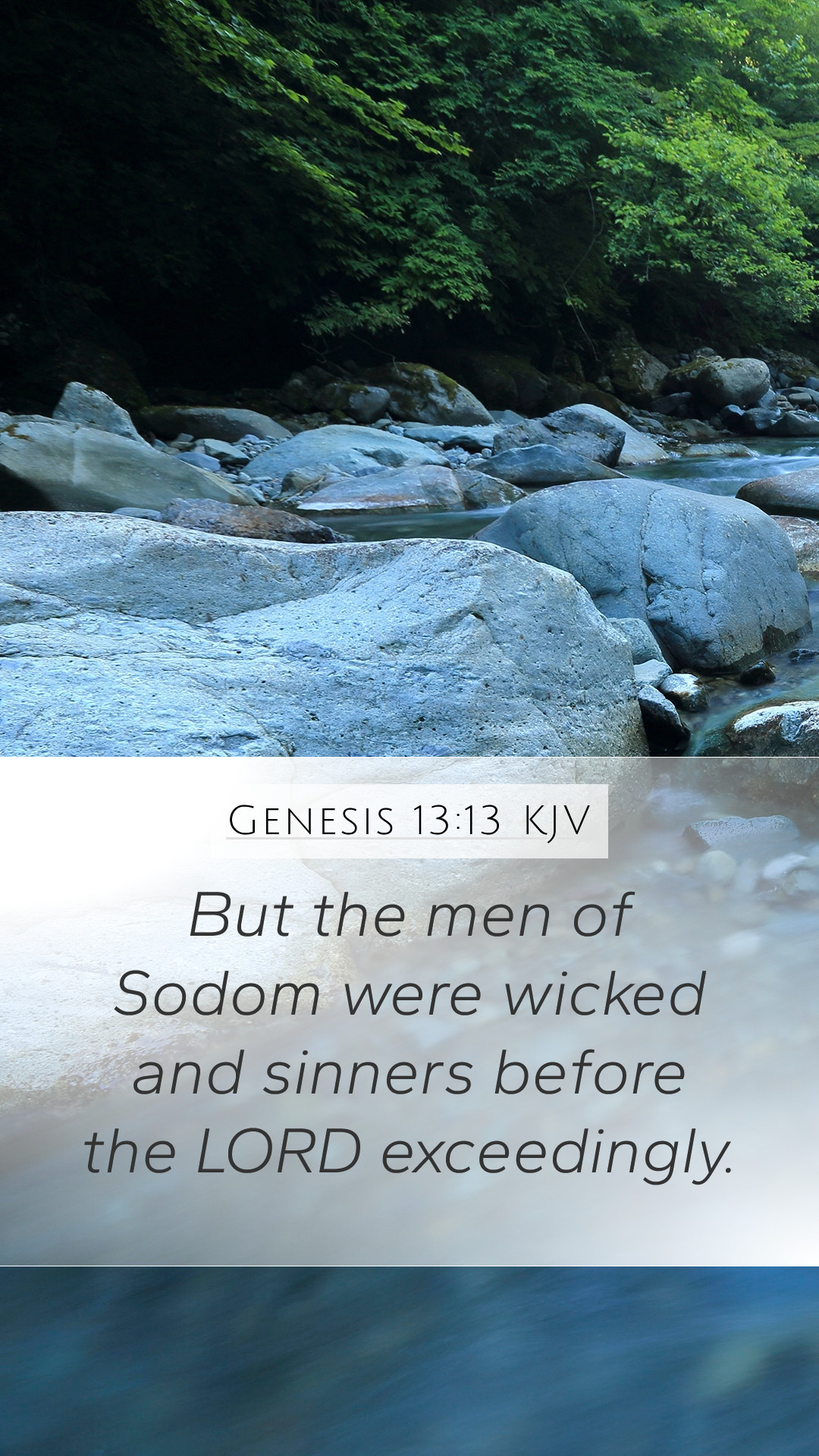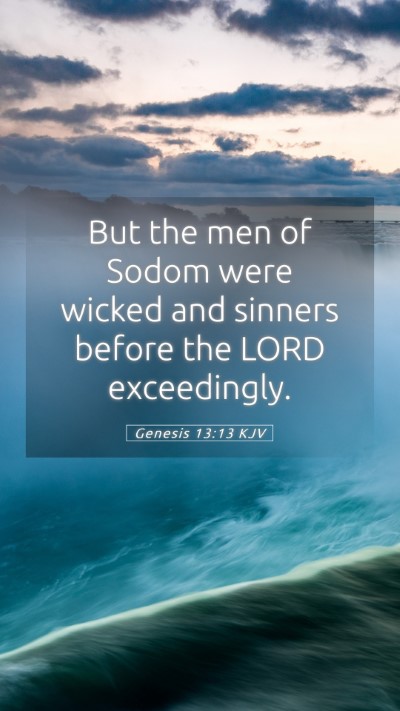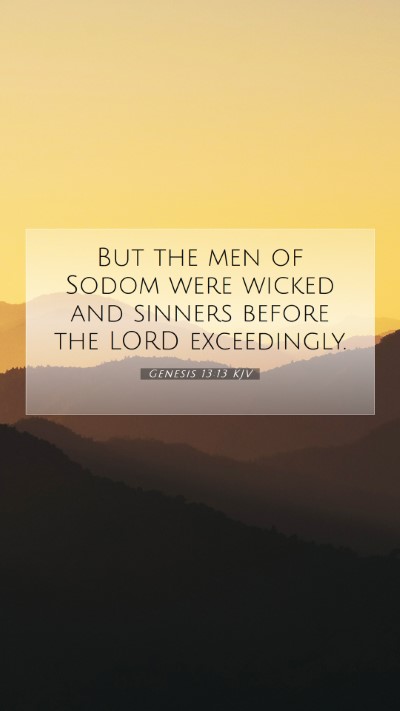Understanding Genesis 13:13
The verse Genesis 13:13 states:
"But the men of Sodom were wicked and sinners before the LORD exceedingly."
Overview and Context
In this passage, we find two notable figures: Abram (later known as Abraham) and Lot, who had separated due to the strife between their respective herdsmen. This verse reveals the spiritual and moral landscape of Sodom, a city known for its notorious sinfulness. The presence of this description sets the stage for significant events that follow in the biblical narrative.
Bible Verse Meanings
Genesis 13:13 provides insights into the nature of sin and the magnitude of wickedness that can inhabit a society. The phrase "wicked and sinners before the LORD exceedingly" reflects not only the sinful actions of the people of Sodom but also their blatant disregard for God, indicating a high level of iniquity
Commentary Insights
- Matthew Henry: Henry emphasizes that the term "wicked" signifies 'morally wrong' actions, underlining that the sins of Sodom were not just personal but societal, reflective of collective rebellion against God. This commentary encourages readers to discern the implications of society's acceptance of sin.
- Albert Barnes: Barnes highlights that the sins of Sodom were known to God, suggesting that there is no hidden sin. He builds on this by discussing the potential future judgment that awaits such cities, reinforcing the theological principle that God is aware of all human actions.
- Adam Clarke: Clarke comments on the cultural and social aspects of Sodom, explaining how the city's moral corruption serves as a cautionary tale. He elaborates on the consequences of moral decay and the eventual divine judgment that was to follow.
Scripture Analysis
The analysis of Genesis 13:13 must take into consideration historical context, the character of God as righteous judge, and the outcome of such sinfulness. This verse not only illustrates the nature of Sodom but also serves to contrast with the righteousness of Abram, who converses directly with God.
Biblical Exegesis
Upon closer examination, we see that the verse employs strong language to describe moral failings. The term "exceedingly" signifies a superlative degree of wrongdoing, suggesting that the standard of righteousness had been not just breached but obliterated. Understanding the gravity of this statement leads to deeper reflection upon the spiritual health of communities.
Applying Bible Verses to Daily Life
Genesis 13:13 challenges believers today to consider the condition of their own communities. Are we tolerating sin? How do we respond to moral decay? The exhortation is both personal and communal, urging one to live in alignment with God's standards.
Cross References
- Genesis 18:20-21: Where God reveals His intent to investigate Sodom's sin.
- Ezekiel 16:49-50: Where the specific sins of Sodom are detailed.
- Romans 1:18-32: Where Paul discusses the nature of human sinfulness in relation to God's judgment.
Conclusion
Genesis 13:13 serves as a poignant reminder of the consequences of unrepentant sin and the character of God as a just Judge. It calls on believers to reflect deeply on their own lives and community standards, while also offering a narrative that leads to greater understanding in the journey of faith.
For Further Study
For those interested in deepening their understanding of this scripture and its implications, consider engaging in Bible study groups, using Bible study tools, or exploring Bible study resources online. Resources such as Bible study guides and Bible study lessons can provide excellent contexts for deeper reflection.


